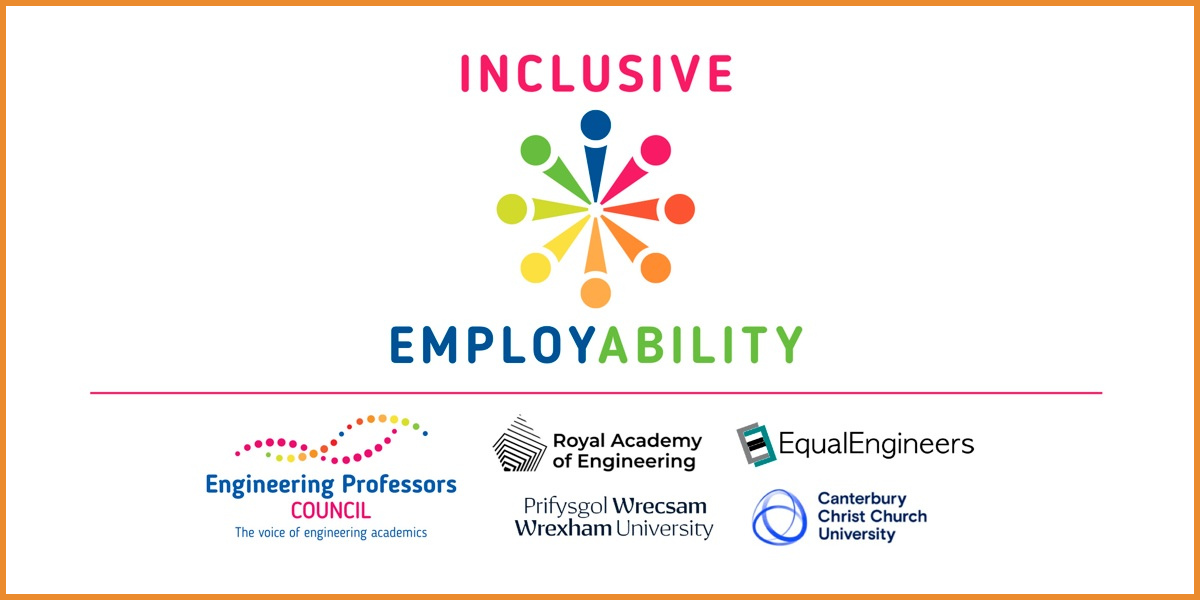
Objectives: Enhance your profile and personal brand with a strong CV, Cover Letters, and LinkedIn presence. This initiative aims to equip you with the skills to create CVs and LinkedIn profiles that reflect your unique identity and adhere to Equality, Diversity, and Inclusion (EDI) standards. Our objective is to help underrepresented groups highlight their skills and experiences, ensuring their job applications are compelling and impactful.
Introduction: This activity is designed to help you strengthen your personal brand by developing impactful CVs, cover letters, and LinkedIn profiles that reflect your unique identity. With a focus on Equality, Diversity, and Inclusion (EDI), you’ll gain practical tips for presenting your skills and experiences in a way that resonates with employers and promotes inclusive values in the workplace.
Topic: How to build your personal brand with inclusive CVs, cover letters, and LinkedIn profiles.
Keywords: Equity, Diversity and Inclusion; CVs and cover letters; Employability and skills; Personal or professional reputation; Communication; Writing skills; Recruitment; Professional conduct; Digitalisation; Business or trade or industry; Ethical awareness; Inclusive or Responsible design; Networking.
Enhance your CV, cover letters, and LinkedIn presence
Wenite Video offers resources to help you create EDI-focused CVs and LinkedIn profiles. This includes expert advice and strategies for underrepresented groups, ensuring your job materials highlight your unique identity and skills.
Video summary:
Tolu Osobu-Gabbie shares tips on creating a robust CV, cover letter, and LinkedIn profile, emphasizing the importance of diversity and inclusion in the workplace.
Key insights:
📝 Structured CVs: A well-structured CV enhances readability, making it easier for recruiters to assess qualifications quickly. This can significantly increase your chances of being noticed.
🔍 Tailored applications: Customising your CV for each job with relevant keywords can align your skills with the employer’s needs, making you a more attractive candidate.
📈 Quantification matters: Using numbers to demonstrate your achievements can capture attention and convey the impact of your contributions effectively.
🌟 Strong opening in cover letters: Starting with a personal story can create a memorable first impression and establish a connection with recruiters.
🚀 Highlight key Skills: Focusing on two to three relevant skills in your cover letter allows you to showcase your strengths without overwhelming the reader.
🌍 Mutual values: Demonstrating how your values align with those of the company can strengthen your application and show that you’re a good cultural fit.
🔗 LinkedIn optimisation: An updated LinkedIn profile enhances visibility to recruiters, and using keywords can improve your chances of being found for desired roles.
Resources:
LinkedIn profiles
Learn the requirements and best practices for EDI-compliant CVs and LinkedIn profiles to effectively communicate your unique background to employers.
Leverage LinkedIn’s multimedia features like reels, photos, and watermarked PDF documents to enhance your profile. Strategic use of elements can make your profile stand out, increase credibility and highlight your technical and employability skills:
- Reels showcase your personality and expertise through short videos, photos add visual context to your achievements
- Watermarked PDF documents provide a professional touch and evidence of your communication of your skills and protects your Intellectual Property (IP).
Further links to look at:
- Writing successful applications: Gain insights into crafting job applications to showcase your individuality and diversity.
- What employers look for in a CV: Understand the key elements that make your EDI CV stand out to employers.
- “LGBTQ+ activity on your CV – In or out?”: A guide for LGBTQ+ students on including LGBTQ+ activities and leadership roles on their CVs.
- Neurodiverse student survival guide to employer expo: A guide for neurodiverse students applying for graduate employment.
- Resources for employers: A range of resources for employers to enable you to be more inclusive.
- When to disclose your disability: Strategies and considerations for disclosing a disability in your job application materials.
- 10 Tips for taking a professional LinkedIn profile photo: Enhance your LinkedIn profile with a professional, identity-reflective photo.
- Positively framing multilingual and intercultural skills in applications: Advice on how to effectively showcase your multilingual abilities and intercultural competencies as key strengths in your applications.
- Showcase your portfolio: A step-by-step guide to displaying your work and projects on LinkedIn, demonstrating your skills and accomplishments to potential employers.
- Showcase your work on Linkedin
- How to add portfolio to your LinkedIn
- Convert your LinkedIn profile into an online portfolio
Creating a portfolio on Linkedin:
Jessica Norton from UMass Amherst Career Development & Professional Connections HUB walks through how to set up a LinkedIn Portfolio to heighten visibility of your professional projects!
This work is licensed under a Creative Commons Attribution-ShareAlike 4.0 International License.
Any views, thoughts, and opinions expressed herein are solely that of the author(s) and do not necessarily reflect the views, opinions, policies, or position of the Engineering Professors’ Council or the Toolkit sponsors and supporters.
Please note: Discussions around discrimination, prejudice and bias are highly complex and part of a much wider national and international debate, including contested histories. As such, we have limited the scope of our resources to educating and supporting students.
The resources that the EPC and its partners are producing in this area will continue to expand and, if you feel there is an issue that is currently underrepresented in our content, we would be delighted to work with you to create more. Please get in touch.